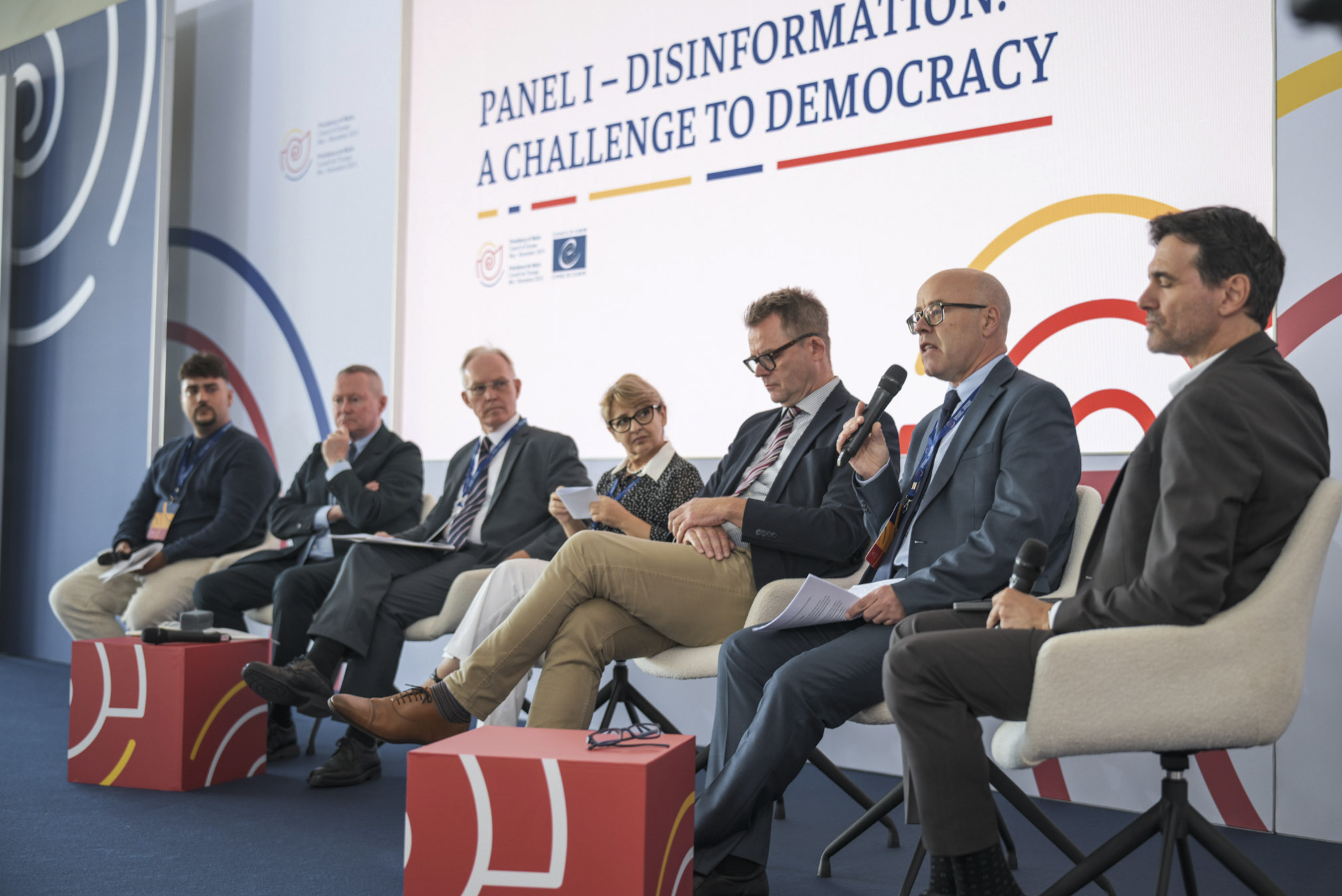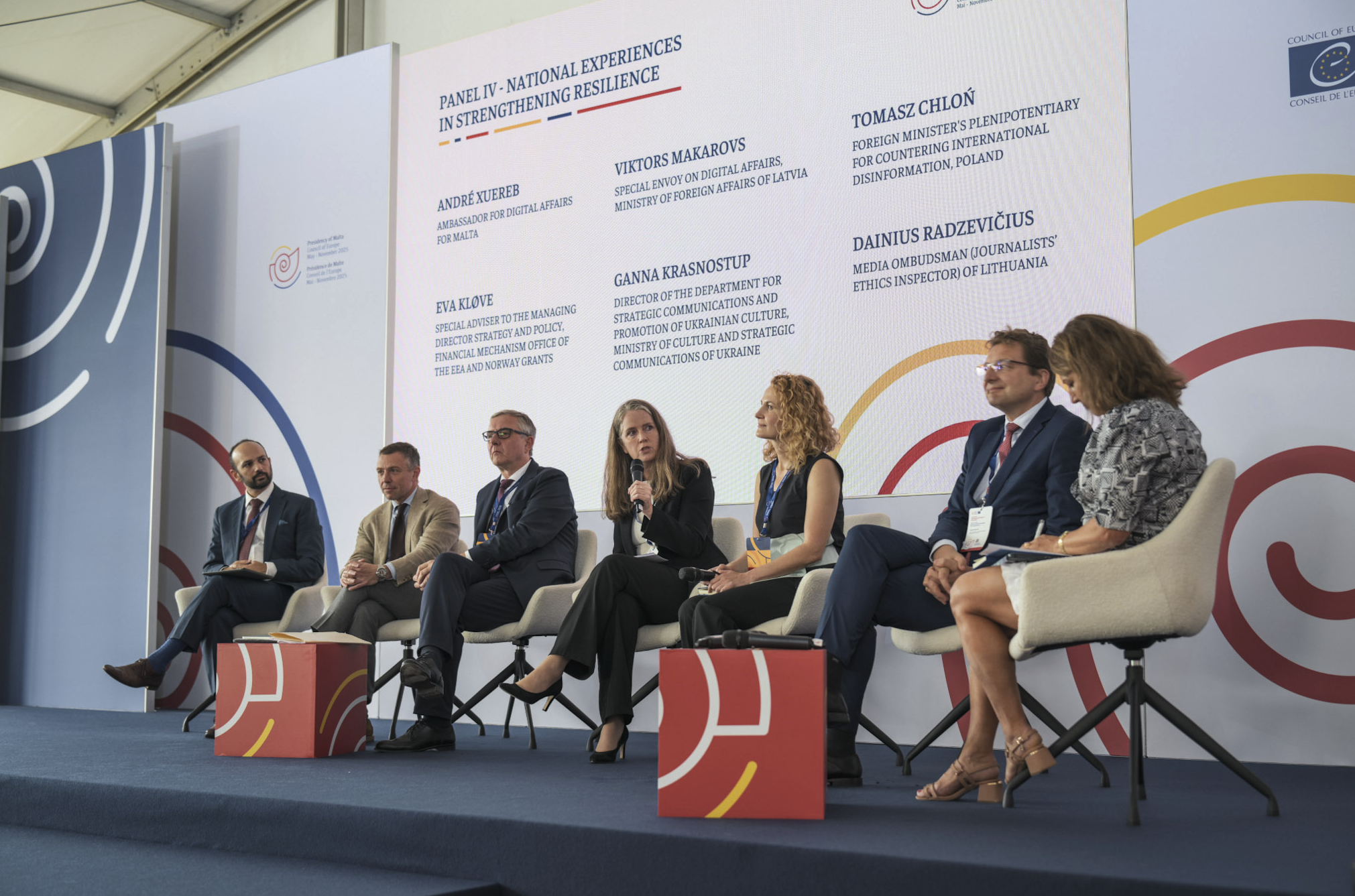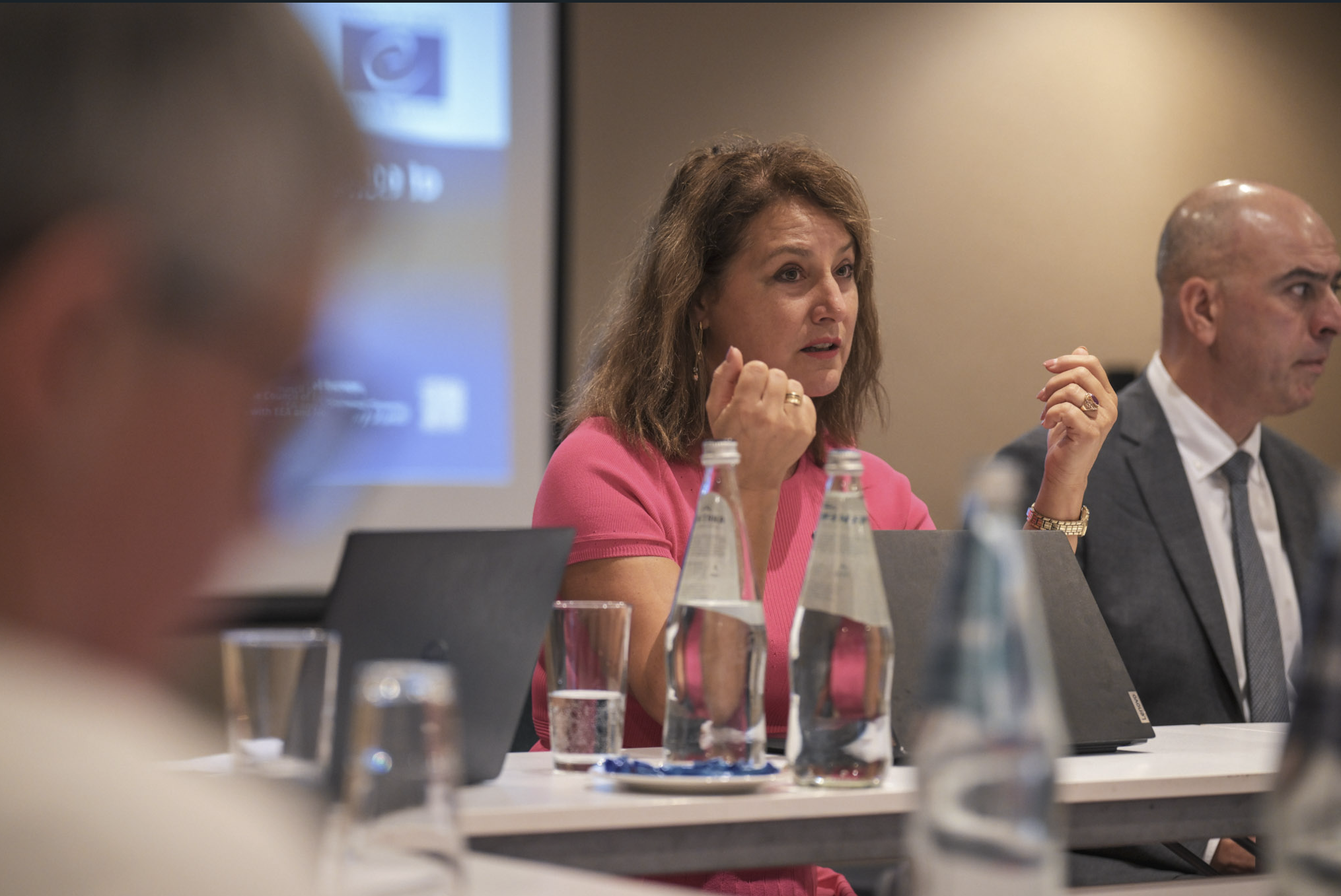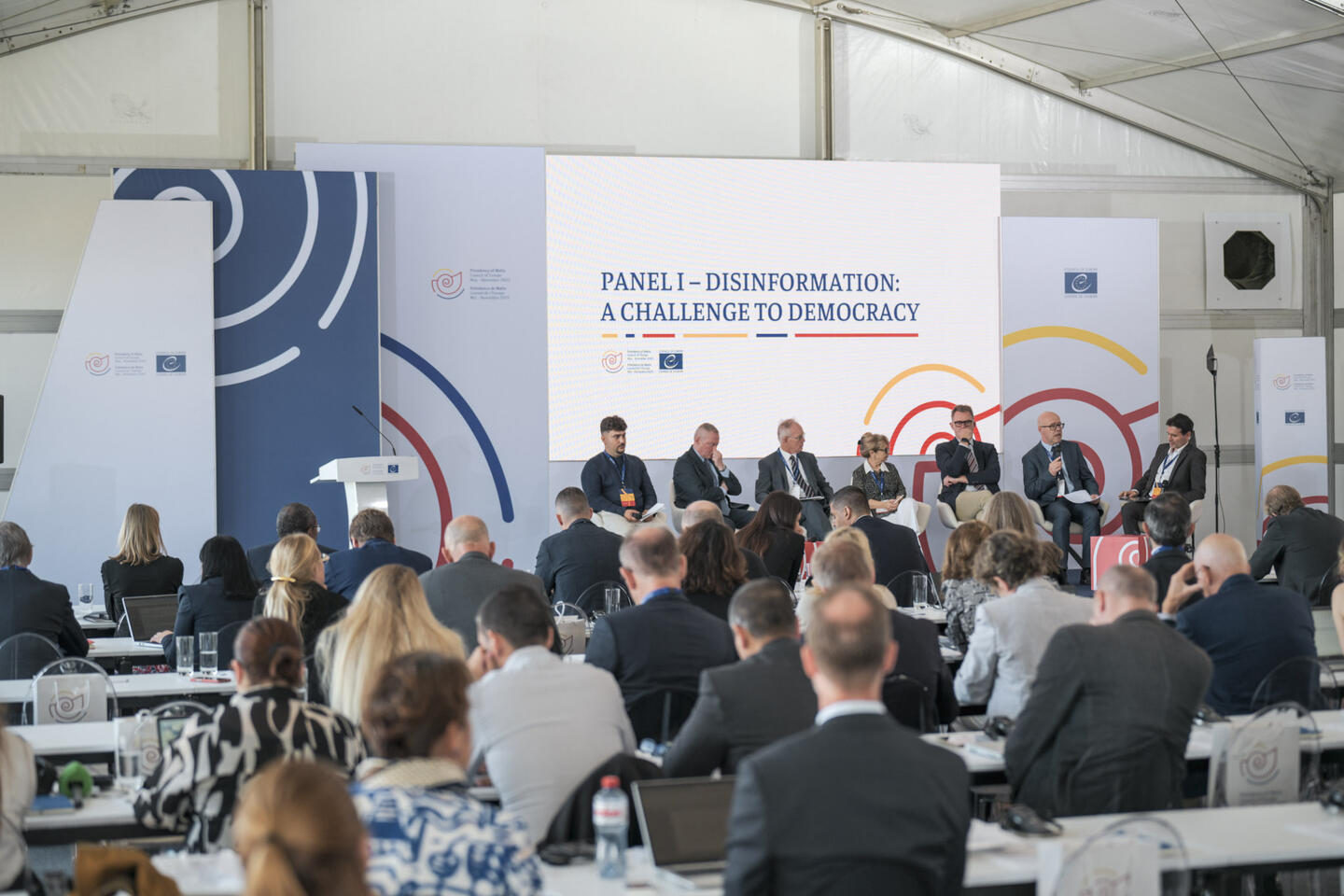Across Europe, the exponential rise in disinformation and information manipulation is challenging the foundations of democracy, human rights, and the rule of law. Fuelled by geopolitical tensions, interference from authoritarian actors, and rapidly evolving technologies, these threats exploit the vulnerabilities of open societies. 8 out of 10 Europeans agree that news or information that misrepresent reality or is even false is a problem for democracy.
The Council of Europe and Malta’s Ministry for Foreign Affairs and Tourism co-hosted this week’s conference on Disinformation under Malta’s Presidency of the Committee of Ministers. Bringing together policymakers, regulators, civil society, media, academia and the tech sector, the event addressed the impact of disinformation on democracy and public trust, with a focus on media freedom, literacy, education, youth and culture.
Disinformation can undermine democratic elections, promote social unrest, and increase censorship through counter-disinformation measures. And the global outlook for democracy is disheartening, to say the least. Bjørn Berge, Deputy Secretary General of the Council of Europe

A values-based approach
The EU has adopted a whole-of-government approach, combining tools such as the East StratCom Task Force and the European Digital Media Observatory with landmark regulations like the Digital Services Act (2023), the AI Act (2024), and the European Media Freedom Act (2025). These efforts aim to hold platforms accountable, empower users, and build societal resilience.
Iceland, Liechtenstein and Norway complement these efforts through the EEA and Norway Grants, a unique values-based financial mechanism rooted in European solidarity. The Grants support European efforts to enhance information integrity as part of the core priority area “Democracy, the rule of law and human rights”. The approach is grounded in key democratic and human rights principles, including that every person must have equal access to reliable information, be protected from harmful content, and be able to participate meaningfully in shaping the information landscape.
The Grants promote transparency, equality and non-discrimination, accountability, and access to trustworthy information, especially for those most vulnerable to manipulation and exclusion.

Disinformation erodes trust and threatens our shared European values. The most effective defence against disinformation is therefore a proactive strengthening of democratic institutions and civic capabilities. Eva Kløve, Special Adviser at the EEA and Norway Grants
The Grants’ efforts aim to span the entire information chain:
- Promoting information integrity
- Strengthening societal resilience to disinformation
- Promoting ethical use of technology
- Supporting independent media
- Embedding critical thinking in schools, education and culture
- Countering disinformation
Partnerships are key
Through the EEA and Norway Grants, Iceland, Liechtenstein and Norway have partnered up in the efforts to promote and enhance information integrity. These are international partners such as the Council of Europe and the EU Fundamental Rights Agency, and then national governments and civil society organisations, to mention the main ones.
During the conference, a milestone was reached with the launch of the Council of Europe’s new project, RESIST: Strengthening Societal Resilience to Disinformation in Europe, funded by the EEA and Norway Grants. The project is aimed at helping states to strengthen resilience to disinformation and empower young people through media and information literacy.

We are breaking new ground with the RESIST project because culture, youth work and education are largely untapped resources for making citizens more aware and resilient to disinformation. Thanks to the EEA and Norway Grants support we can go beyond the classic anti-discrimination approaches which are clearly not sufficient. Irena Guidikova, Head of the Democratic Institutions and Freedoms Department, Council of Europe.
As highlighted by the 2025 Report of the Secretary General of the Council of Europe calling for a New Democratic Pact for Europe, disinformation poses a significant threat to the foundations of democratic societies, challenging public trust, electoral integrity, pluralism, and fundamental rights. The growing sophistication and scale of information manipulation, often driven by hostile actors and amplified by digital platforms, undermine the ability of citizens to receive reliable information and make informed decisions. It ultimately erodes trust in democratic institutions.
Read more about the Grants’ efforts to enhance information integrity here.
